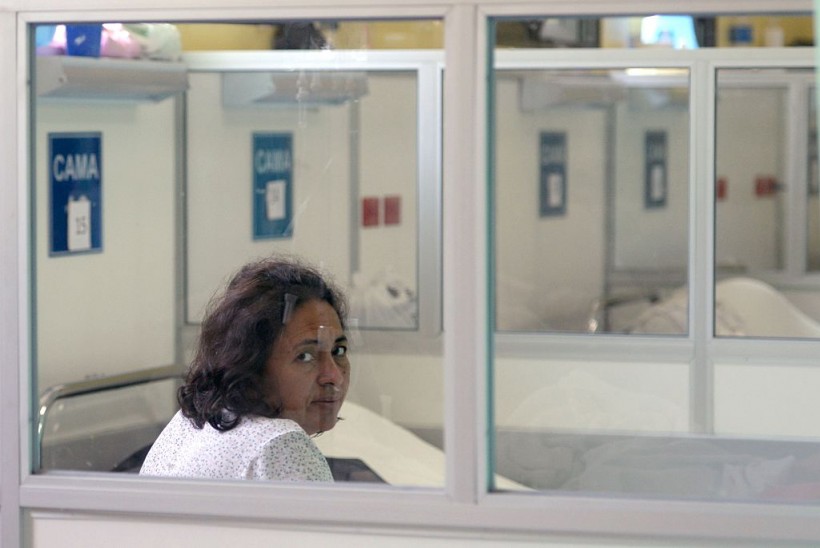A study indicates that a COVID-19 infection can lead to the auto-immune disease Guillain-Barré syndrome (GBS). The immune system assaults the nerves, resulting in muscular weakness and, in rare cases, paralysis. An acute bacterial or viral infection causes the illness, which can continue for weeks or years.
Over 90 GBS cases have been recorded due to a potential COVID-19 infection since the start of the pandemic. However, it is uncertain whether COVID-19 is another possible viral cause or whether the observed instances are unrelated.
The study's title is "Guillain-Barré Syndrome After Sars-Cov-2 Infection in an International Prospective Cohort Study."
COVID-19 May Cause Guillain-Barré Syndrome in Rare Cases
Bart C Jacobs of Erasmus MC, University Medical Center Rotterdam, the Netherlands, said in a Medscape report that COVID-19 might precede Guillain-Barré syndrome in rare cases. However, he did clarify that the presence of a real connection or causal relationship must still be proven.
While a significant link between a COVID-19 infection and GBS is unlikely, researchers mentioned that COVID-19 infection could lead to the disease in certain people.

A patient suffering from the Guillain-Barre syndrome recovers in the neurology ward of the Rosales National Hospital in San Salvador on January 27, 2016. Health authorities have issued a national alert against the Aedes aegypti mosquito, a vector of the Zika virus which might cause microcephaly and Guillain-Barré syndrome.
The researchers say it's unknown whether COVID-19 is another possible viral trigger or whether the observed instances are coincidental.
Over 90 cases of Guillain-Barré syndrome have been diagnosed as a result of a suspected COVID-19 infection since the outbreak began.
Researchers Noted Guillain-Barré Syndrome From COVID-19 Patients Aging 50 Years Old and Above
Onmanorama said researchers evaluated patients from January 30 to May 30, 2020, using an international collection of Guillain-Barre syndrome patients known as the International GBS Outcome Study (or IGOS).
The research recruited 49 new Guillain-Barre syndrome patients from China, Denmark, France, Greece, Italy, the Netherlands, Spain, Switzerland, and the United Kingdom.
Researchers said 22 percent of the Guillain-Barré syndrome patients included in this study had a previous COVID-19 infection within the first four months of the pandemic.
ALSO READ: Guillain-Barre Syndrome and COVID-19: What Connects Them?
According to the researchers, these patients were all over 50 years old. They commonly (65 percent) had facial palsy (64 percent) and had a demyelination type of GBS.
The study pointed out that 73 percent of Guillain-Barré patients with a COVID-19 infection exhibited elevated inflammatory markers at the time of admission to the hospital.
All of these individuals met both the Guillain-Barré syndrome and COVID-19 diagnostic criteria.
However, the researchers observed that they did not identify more individuals with Guillain-Barré syndrome throughout the first four months of the epidemic than in prior years. They likewise did not identify any more GBS cases than in prior years.
Guillain-Barré Syndrom Linked to COVID-19 Vaccine
Meanwhile, COVID-19 vaccines have been associated with Guillain-Barré Syndrome.
The European Medicines Agency (EMA) has classified it as an "extremely unusual" adverse effect of the AstraZeneca COVID-19 vaccination. Recently, the Johnson & Johnson COVID-19 vaccination was added to the GBS list.
In a statement released on Wednesday, the EMA stated that a causal link between the adenovirus-based vaccination and GBS was "considered at least a plausible possibility."
Hence, FDA said the condition should be listed as a side effect of the vaccination in the product description.
The EMA also suggested that a warning be included to remind vaccination recipients to seek medical treatment if they experience weakness and paralysis in their extremities, which can spread to the chest and face.
Forbes said only 833 incidents of the adverse effect had been recorded globally from about 592 million given doses of the AstraZeneca vaccine as of July 25.
RELATED ARTICLE: COVID-19 Vaccination Effect: Rare Neurological Condition Detected in Some Individuals After Getting Vaccinated
Check out more news and information on COVID-19 on Science Times.














